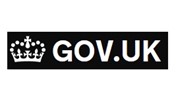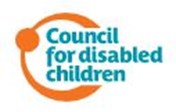How the Mental Capacity Act works
Under the Mental Capacity Act the issue of capacity is decision-specific; this means that the test of someone’s capacity can only be made in relation to a particular decision that needs to be made at a particular time.
For example, if a young person was going into hospital for an operation and had to make a decision about the type of anesthetic they had, the medical professionals involved at the time would consider that person's capacity to make that decision.
This is an important safeguard against blanket assessments of someone’s ability to make decisions based on their disability or condition. It also recognises the fact that someone may be able to make some decisions but not others.
This could be fairly small decisions such as what we eat or the clothes we wear, or could be much bigger decisions, for example where we live and who we live with. Capacity is based on a single decision at a single time, so some people may have fluctuating capacity, meaning they can make a decision one day and not the next depending on their wellbeing.
The Mental Capacity Act 2005 sets out what should happen when people are unable to make one or more decisions for themselves. It clarifies the roles that different people play in decision-making, including family carers, and establishes a Court of Protection which acts as the ultimate arbiter about mental capacity issues.
The parents or carers of a young person who is unable to make a decision are likely to be involved in:
- Supporting them to make a significant decision
- Supporting during an assessment of their mental capacity
- Making a decision or acting on their behalf
- Being consulted when someone else makes a decision or acts on behalf of their young person
- Challenging a decision made on a relative’s behalf
The Mental Capacity Act has five basic rules when it comes to making decisions:
- Always assume the person is able to make the decision until you have proof they are not.
- Try everything possible to support the person make the decision themselves.
- Do not assume the person does not have capacity to make a decision just because they make a decision that you think is unwise or wrong.
- If you make a decision for someone who cannot make it themselves, the decision must always be in their best interests.
- Any decisions, treatment or care for someone who lacks capacity must always follow the path that is the least restrictive of their basic rights and freedoms.






